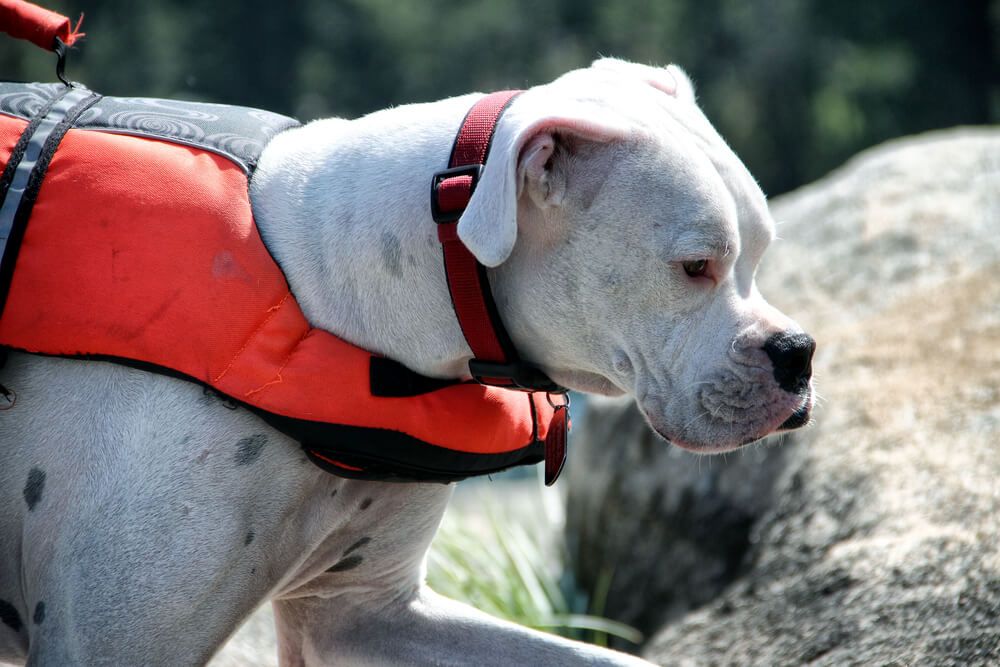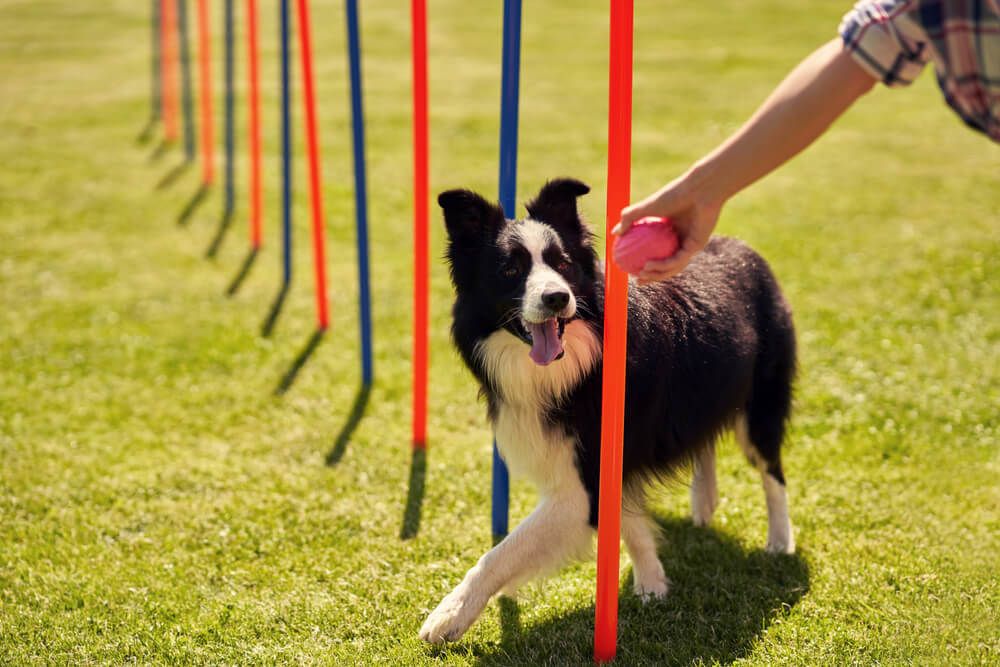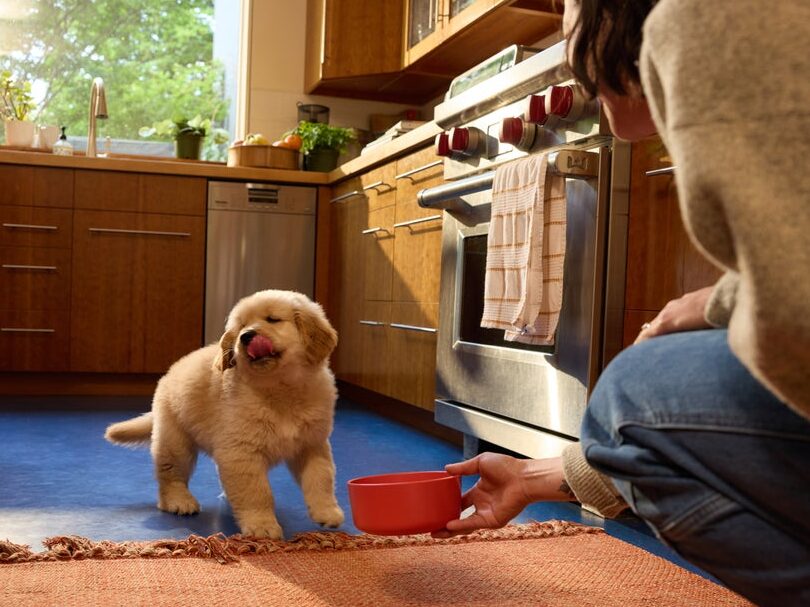Hey Ollie blog readers! We’re offering you an exclusive 60% OFF your starter box! Try now!
You know there are many working dogs out there who help find drugs and bombs, support people with medical conditions so they have more freedom and independence, but you may have wondered how smart are dogs, really? And while some of these dogs with thriving careers of their own are incredibly intelligent, what about the “average” house pet, does this intelligence extend to them as well?

You may be thinking to yourself, yeah, my dog is smart. They know the difference between a trip to the dog park and a trip to the vet. They remember where the pet store is or that the boutique on the corner always has a dog treat and some friendly pets.
They understand words like sit, car, and bone or they know when someone is injured or upset. We looked at signs of canine intelligence, and how to help keep your dog’s cognitive abilities up if you think your dog is really smart.
Signs of canine intelligence
1. Problem-solving abilities
Dogs have the ability to solve many problems. From finding a lost person to getting a treat out of a puzzle toy, there are many problems that dogs have learned how to solve.
A team of researchers from the Oregon State University conducted a study that evaluated the behavior of search and rescue dogs and pet dogs when presented with the same problem-solving task. The study concluded that both sets of dogs persisted at the task for about the same proportion of time, but the search and rescue dogs were more successful at solving the task when encouraged by their owners.
The study also found that the search and rescue dogs did not solve the problem when their owners weren’t with them but that pet dogs would solve the problem when their owners were out of the room. This lead the researchers to believe that communication between dog and handler was more important than they initially thought.
So while your pup may not be a search and rescue dog, having your encouragement can help with problem-solving.
2. Communication
Speaking of communications, while our dogs don’t speak to us in the same language, they can be very clear communicators. (Trust us, have you ever seen a dog let you know that it’s 5:02 pm and dinner is served promptly at 5?) Your dog may also be able to tell you something smells funny, they have to go to the bathroom, or even that you found a good spot when doing belly rubs.
In recent years, research has been done into whether dogs can communicate using our language. You might be familiar with the TikTock sensation, Bunny. On her account, WhataboutBunny you can follow her journey as she learns to speak using a mat covered in buttons with pre-recorded words.
There is much debate in the scientific community about whether Bunny and dogs like her are actually talking. The Comparative Cognition Lab at UC San Diego is conducting research to learn more about how this communication works and if the dogs are actually talking or responding to subtle signals or reinforcement from their owners or trainers.
3. Scent detection
Dogs have been using their sense of smell to aid in search and rescue as well as bomb and narcotics detection for many years. Recently these scent skills have been put to use in other ways like to sniff out gluten, alert to changes in heart rate for people with POTS or other cardiac conditions, or alert diabetics to dangerous changes in blood sugar.
In the future, our dogs may even have a role in preventing diseases. The University of Pennsylvania has conducted studies to see if pups can sniff out deadly cancer like ovarian cancers and even COVID-19. Some of their results when it comes to dogs sniffing out COVID-19 have been confirmed by researchers across the globe conducting similar studies.
4. Social skills
They don’t call dogs “man’s best friend” just because we like having them around. Dogs have evolved to bond deeply with humans. A study conducted by Victoria Wobber, & Brian Hare in 2009 entitled “Testing the social dog hypothesis: Are dogs also more skilled than chimpanzees in non-communicative social tasks?” showed that indeed dogs are more skilled than chimpanzees in social tasks that involved communicating with humans.
The study showed that this is likely a result of domestication, as wild wolves do not show the same characteristics. But if you’re often impressed with your dog’s ability to pick up on social cues and learn behaviors (that get them what they want) it’s probably a combination of domestication and positive reinforcement.
How to engage with your smart dog
If you’re concerned that you aren’t engaging your dog to use their full intelligence of your dog is actively showing signs of boredom there are a few things you can do. These include:
1. Teach cues
You can teach your dog verbal or even visual cues for many of the common things you do. This could include the cue for getting ready for a walk. Putting themselves to bed or even helpful things around the house like turning off a light, bringing you an object or cleaning up their toys.
2. Try trick training or a dog sport

Another fun way to grow your bond and challenge your dog’s intelligence is trick training or a dog sport like rally or agility. Tricks are great because they can be tailored to your dog’s age and fitness level. So while your senior pup isn’t likely to be doing tricks that are really physical and involve jumping, they can certainly learn to draw or paint or even perform a series of tricks that are connected.
3. Participate in research studies
If your dog seems to have a particularly sharp nose, they can sometimes participate in research studies. We’re not suggesting you sign your dog up to have things medically tested on them (please don’t) but universities like the Univerity of Pennsylvania run programs like this cheeseCitizen Science course where people can bring their pets in and learn (and try) to do some scentwork. You could also consider participating in The Dog Aging Project. Their mission is to conduct rigorous scientific research designed to define, explain, and ameliorate the effects of aging. To achieve this mission, they have built a community of volunteers and researchers united by a shared love for dogs and committed to helping dogs and humans live longer, healthier lives—together.
4. Volunteer as a therapy dog team or train in search and rescue
For dogs with incredible social skills or scent drive you can train together to become a volunteer therapy dog team or volunteer with search and rescue to help find missing persons.
Remember that search and rescue work can be physically and mentally demanding for both you and your dog, so the training for that type of work will be much more rigerous and demanding. However, therapy dogs are needed in schools, hospitals and times of crisis – so although the training may be less rigerous there is plenty of opportunity to serve.
While your dog might not be helping to cure cancer or sniff out COVID-19 or even provide comfort to those in need, your beloved pet has many other skills they use on a daily basis in their most important role as your best friend and a member of your family.
The Ollie blog is devoted to helping pet parents lead healthier lives with their pups. If you want to learn more about our fresh, human-grade food, check out MyOllie.com.
Tagged As:

The nutrition your dog needs,
the food they want.

Enjoying our articles? Subscribe our Newsletters and get new articles directly to your inbox
You might also like
13 May 2025
8 MINS READ
Puppy Training Guide & Behavior Timeline
Bringing home a puppy is pure magic. It’s also pure chaos—tiny teeth, zoomies, accidents in the house, and moments that make you wonder if you’re raising a future genius or a tiny tornado. …
by Ollie Pets
10 May 2025
12 MINS READ
New Puppy Checklist: Guide To Prepare For A New Dog
Bringing home a new puppy? This checklist covers everything new dog owners need—from essential supplies to training, feeding, and first vet visits.
by Ollie Pets
3 April 2025
9 MINS READ
Home Remedies for Fleas on Dogs: 10 Natural Ways That Actually Work
Wondering what kills fleas on dogs instantly and naturally? If your pup is scratching like crazy, it may be time to take action. In this guide, we’ll show you the most effective home remedies for…







